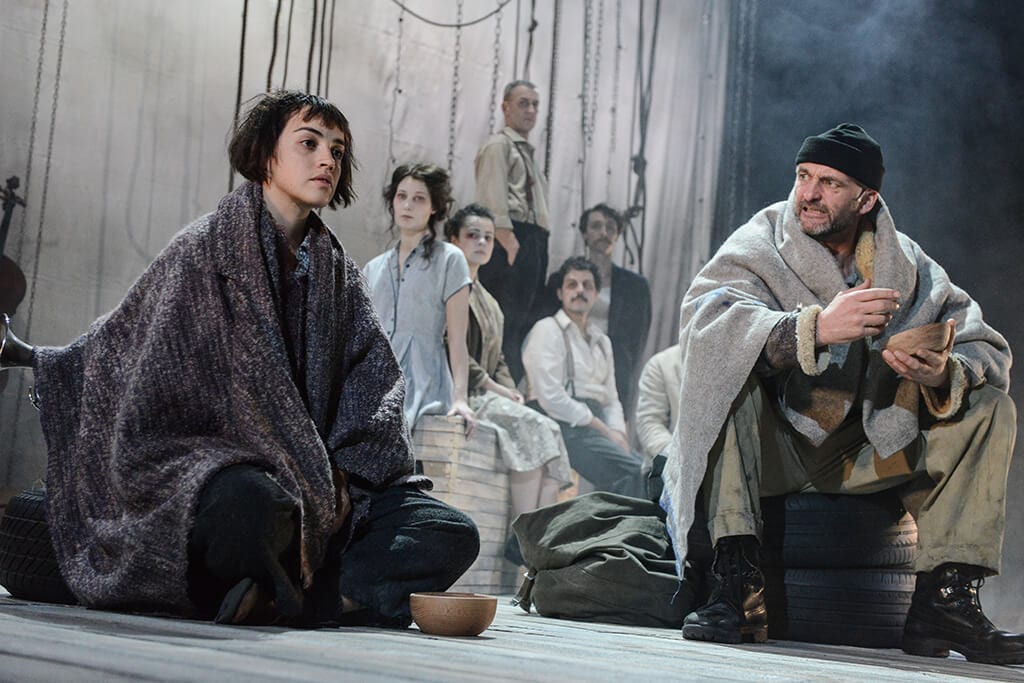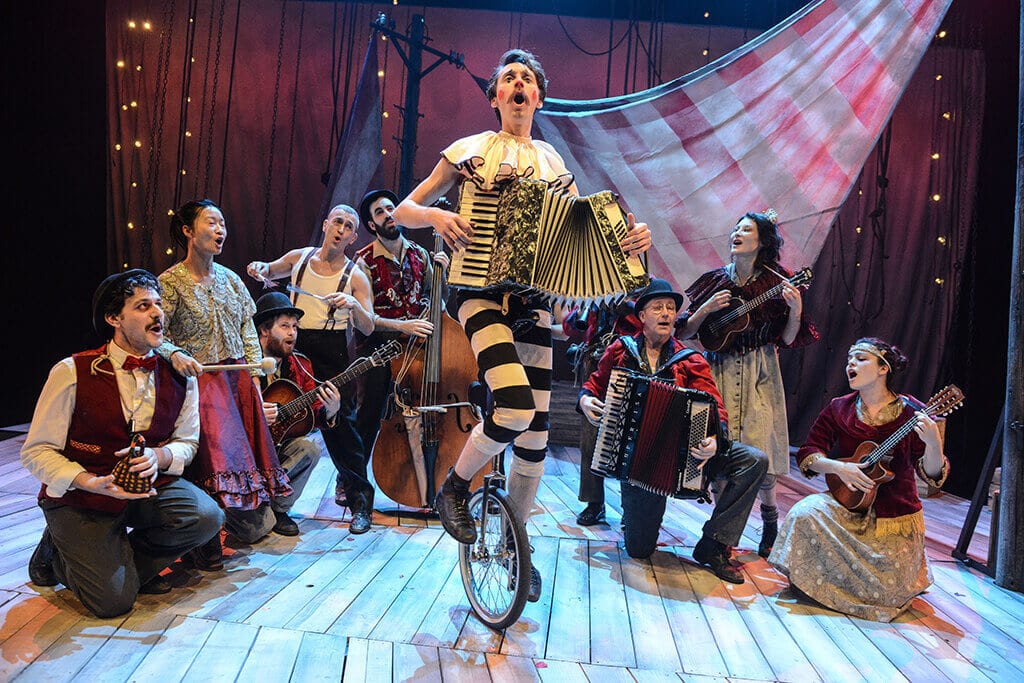La Strada is a new piece of devised work, incorporating circus and live music into a searing portrayal of travelling performers in 1950s Italy. It is based off the seminal film of the same name by Federico Fellini, and follows a young autistic-coded girl, Gelsomina, who gets sold by her struggling mother to a wandering strongman, Zampanó. They travel together for a time, Zampanó teaches her to perform by beating her and often leads her by the side of the road as he drinks and womanises the night away. Eventually, she manages to leave him after he commits a crime that even her naïvety and kind heart can’t forgive or ignore.
Federco Fellini was of the founders of Neo-Realism in film, which sought not to tell the audience what to think, or judge the characters, merely to present the facts and let the audience struggle with their own interpretations. This is a huge force in this version of La Strada, I never felt like I completely understood any one of the characters, as soon as I felt like I got close it was whisked away from me by a humanising gesture from Zampanó or a carelessly cruel word from Il Matto, a fool who is the kindest character to Gelsamina. It would be easy to feel lost in this brutal, unforgiving world but Gelsomina (Audrey Brisson) is effortlessly charismatic and wonderfully pure, we would follow her to the ends of the earth. The story may be all about her, but the world around it is rich and vivid, fully realised by the chorus and supporting characters. The chorus is almost constantly on stage, providing music that is by turns beautiful, eerie and utterly overwhelming. In short, this is the kind of epic story that needs a very stable hand on the tiller in order for the audience to have an enjoyable (if that’s the right word for a show that is almost unrelentingly bleak) experience, but the company and main characters certainly provide that.
It is difficult to believe, on paper, that there are moments of levity in this production, but there are and they are complete gems. Again, Audrey Brisson’s winning Gelsomina is a huge reason why they work, but Bart Soroczynski must also get mention for his clown, Il Matto, who has the audience as soon as he enters and never loses us. Of course, these moments made the tragedy that is undeniably at the heart of this play all the harder to take.
The world is merciless and the look of the piece perfectly matches it. That is not to say that it isn’t beautiful, Katie Sykes’ set is functional and very cleverly used, boxes, car tires and huge torch become Zampanó’s motorbike and leaving characters up one of the two telegraph poles, looking down on the action, is a nice device, especially when used to represent the two very different paths Gelsamina could take, to follow the fool Il Matto or go back to Zampanó. The make up of the chorus, subtle white face paint with shadowy, smoky red eye make up, they look not quite human, just slightly unrecognisable, which quietly adds to the sinister air of this world, as I said before, we never feel completely safe here.
La Strada is not an easy watch, it is far too brutal for that, but it is an absolutely dazzling one. It’s nearly two hours, minus the interval, but still feels too short, I could have happily stayed for four. From the costume to the music to the heartrendingly realised characters, this is a wonderful theatrical experience, a reminder of what the medium can be.



